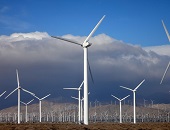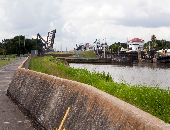Decarb Economics 101
To mitigate the consequences of climate change, the world requires international coordination. In 2015, the Paris Agreement was signed by 195 nations. Its long-term temperature goal is to keep the rise in mean global temperature to well below 2 °C (3.6 °F) above pre-industrial levels, and preferably limit the increase to 1.5 °C (2.7 °F), which would reduce the worst effects of climate change. Many countries are developing policies to get themselves on a path toward achieving the agreed-upon 1.5 °C goal. Although present progress may seem piecemeal, in the words of a Chinese proverb, “A great journey begins with a single step.” The figure below […]
Free the Data
Hurricanes, floods, heat waves, droughts: weather events are increasing in severity as the earth’s atmosphere warms. The consensus is that we need to reduce greenhouse gas (GHG) emissions. Yet recent reports show waning interest in initiatives such as Climate Action 100+. “When performance is measured, performance improves,” according to Pearson’s law, and “when performance is measured and reported back, the rate of improvement accelerates.” Such is the reasoning behind the data repository known as the Net-Zero Data Public Utility (NZDPU). On February 21, 2024, three panelists from NZDPU spoke about the “why” and the “how” of their new organization. The […]
Tax or Cap?
Carbon tax or cap and trade? These are terms bandied about in the political arena as countries decide how to address global warming. “There is a clear consensus among economists,” said Roger Gordon, professor of economics at University of California at San Diego, “that the best way to address global warming is through the global use of a carbon tax on CO2 emissions.” On January 18, 2024, he was speaking at a webinar as part of the biweekly series of talks, titled the Virtual Seminar on Climate Economics, sponsored by the Federal Reserve Bank of San Francisco (FRBSF). “With a carbon tax,” […]
Diversifying Wildfire Risk
Climate change is altering risk profiles the world over. In the US, it has led to an increase in wildfire season length, wildfire frequency, and the size of burned area. When it comes to such disasters, is the economic risk only borne by those in the risky area, or can the economic risk be shared among investors? A recent webinar looked at a longstanding tool for financial adaptation. For nearly a century, mortgages have been used to create mortgage-backed securities (MBSs) in order to share the risk (and thus the return) of financing real estate. “What are the benefits of […]
California Perspective
Imagine feeling shut out from important decisions in your community. Imagine feeling you were always the last choice when it came to hiring for the good jobs. If social studies showed this was always due to systemic bias, wouldn’t you want to work for change—if not for yourself, at least for the generation to come? This is the motivation behind the movement for diversity, equity, and inclusion (DEI). What are the fundamental principles to accelerate change around DEI? Can financial institutions adapt to DEI—and can their regulatory body, CFA Institute, lead the way? To showcase thriving financial institutions that have […]
Resilient earth?
As 2023 draws to a close, we see increasingly severe climate outcomes around the world—from rising emissions to severe weather events, to increased food and water inequality. Three days before the United Nations Climate Change Conference COP 28 began, a multidisciplinary research organization welcomed scientific panellists to a webinar for an audience of hundreds on November 27, 2023, titled “Nurturing a Resilient Earth.” The virtual event, sponsored by CIFAR (Canadian Institute for Advanced Research), convened an interdisciplinary panel of four top researchers. The discussion was moderated by Stephen Toope, President & CEO of CIFAR, and the author most recently of A […]
Flood Economics
When it comes to natural disasters such as flooding, does it make more economic sense to control the flood? Or to sit back, suffer the consequences, and count on insurance? Climate change leads to more frequent and more intense flooding. As these risks intensify, public funds will often be used to protect communities. Recent work done by economists estimates the amount and distribution of benefits from a major form of public flood risk adaptation, flood control levees. A levee is an embankment built to prevent the overflow of a river. The efficiency and equity implications of levees were investigated by […]
Managing Water Risk
Flooding, drought, and the polluted quality of water pose a business risk to the agricultural sector, which affects everything from geopolitical risk to inflation. What is the cause of water risk, and how can it be mitigated? On October 3, 2023, Catherine David, Director of Collaboration and Change at Waste and Resources Action Programme (WRAP) and a specialist in water risk, spoke about water management designed for sustainability. The webinar was sponsored by the Global Association of Risk Professionals (GARP) and was moderated by Jo Paisley, President, GARP Risk Institute. “According to the FAO,” David said, “by 2030, global demand for […]
The Future of Work
Now that the Covid-19 pandemic fears are receding, what is happening to the average workplace—will it become more or less virtual? Will some workers prefer to continue working from home and refuse to commute? As for generative AI—how will that change the future of work? “There will always be work to do, but it will be different from the work we know now,” said Mary C. Daly, President and CEO of the U.S. Federal Reserve Bank of San Francisco (FRBSF), known informally as “the Fed.” She was the introductory speaker on September 8, 2023, at a presentation outlining the Fed’s […]










